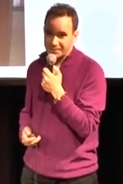My paper ‘Meanings and Understandings in the History of Ideas’ is now online (Open Access – the PDF is free to download!) at the Journal of the Philosophy of History.

This paper gives a much broader account of meaning and understanding than is traditional among philosophers of language and intellectual historians. I offer a philosophical basis for these ideas and show their value in studying the history of political thought and history of philosophy.
This is the sister paper to my article ‘Extended Meaning and Understanding in the History of Ideas’, published last year in History and Theory (see my blogpost here).
Both articles take their inspiration from Quentin Skinner’s classic essay ‘Meaning and Understanding in the History of Ideas’, also published in History and Theory.
Skinner implies that there is one idea of meaning and one idea of understanding; I discuss others. Here’s the summary of my paper:
This paper presents a framework of four types of meaning and understanding in the history of political thought and intellectual history. Previous frameworks have overlooked a whole type of meaning – the type often prioritised by political theorists and philosophers. I call this “extended meaning.” Correcting a wrong turn in philosophy of language in the 1950s, I show how extended meaning has robust intellectual foundations, and I illustrate its value for textual interpreters. Even historians often need extended meaning, for example to help resolve ambiguous passages. So, the main types of meaning are not alternatives: scholars interested in one kind of meaning still need others. This paper thus celebrates both diversity and unity.
Interestingly – and I use that term rather loosely! – most of this paper actually started out in the ‘Extended Meaning’ paper. Only about 10% of the final version of the ‘Extended Meaning’ paper was in the original draft. The rest of it was gradually replaced, until I realised I had enough for a second paper!
This second paper provides a philosophy-of-language basis for the ‘Extended Meaning’ paper. I seek to correct Paul Grice’s wrong turn in the philosophy of language in the 1950s. Grice mostly depicted ‘natural meaning’ as involving natural phenomena (e.g. ‘smoke means fire’). I follow Wayne Davis in depicting this as ‘evidential meaning’, but whereas Davis relates it to signs, I relate it to empirical consequences. To say that P means Q, in the sense of evidential meaning, is to say that if P happens, Q happens.
Seeing evidential meaning in terms of empirical consequences opens the door to what I call ‘extended meaning’, which I relate to logical consequences. To say that P means Q, in the sense of extended meaning, is to say that P logically implies Q. For example, if I say that Paris is the capital of Germany, but Paris is not actually the capital of Germany, this means that I am wrong.
Yet extended meaning is largely overlooked in traditional accounts of meaning and understanding, even though we often use this language in practice. The idea is absent, or only partially or vaguely present, in the typologies of Quentin Skinner, Leo Strauss, E.D. Hirsch (whose famous distinction between ‘meaning’ and ‘significance’ gets heavily criticised in the paper), A.P. Martinich, and Mark Bevir. I also compare extended meaning to similar ideas implied or discussed by John Plamenatz, Knud Haakonssen, Gad Prudovsky, and Morton White. Plus I give lots of examples; some people will enjoy playing the game where they try to guess what my loosely anonymised examples refer to!
Overall, extended meaning is a hugely important kind of meaning in intellectual history – which generates a hugely important kind of understanding, as I discuss in both papers.
Extended meaning thus deserves to be taken seriously by all scholars working on history of political thought, history of philosophy, and intellectual history. It’s an idea we all know implicitly, but the failure to name and theorise it has been a problem.




 Skinner, writing as a historian, focused on ‘intended meaning’ – what authors meant by what they wrote. I focus on ‘extended meaning’ – the implications of what authors wrote, whether intended or not.
Skinner, writing as a historian, focused on ‘intended meaning’ – what authors meant by what they wrote. I focus on ‘extended meaning’ – the implications of what authors wrote, whether intended or not.

 Cambridge University Press has just published my
Cambridge University Press has just published my 

 Of course, some readers will be more interested in my broader claims about the relationship between political theory and science. But note that I don’t equate the two: there are parallels, but also important differences. By contrast, I do argue elsewhere that some textual interpretation is essentially scientific: we often ask empirical questions (like what Locke meant by ‘rights’ or why he wrote what he wrote), and scientific ideas are the best tools we have yet developed for answering such questions. (See
Of course, some readers will be more interested in my broader claims about the relationship between political theory and science. But note that I don’t equate the two: there are parallels, but also important differences. By contrast, I do argue elsewhere that some textual interpretation is essentially scientific: we often ask empirical questions (like what Locke meant by ‘rights’ or why he wrote what he wrote), and scientific ideas are the best tools we have yet developed for answering such questions. (See 
 I’ve now sent the manuscript of Methods in Analytical Political Theory to Cambridge University Press.
I’ve now sent the manuscript of Methods in Analytical Political Theory to Cambridge University Press.

 16 of us wrote reviews of Arthur Melzer’s important book about esoteric writing,
16 of us wrote reviews of Arthur Melzer’s important book about esoteric writing, 
